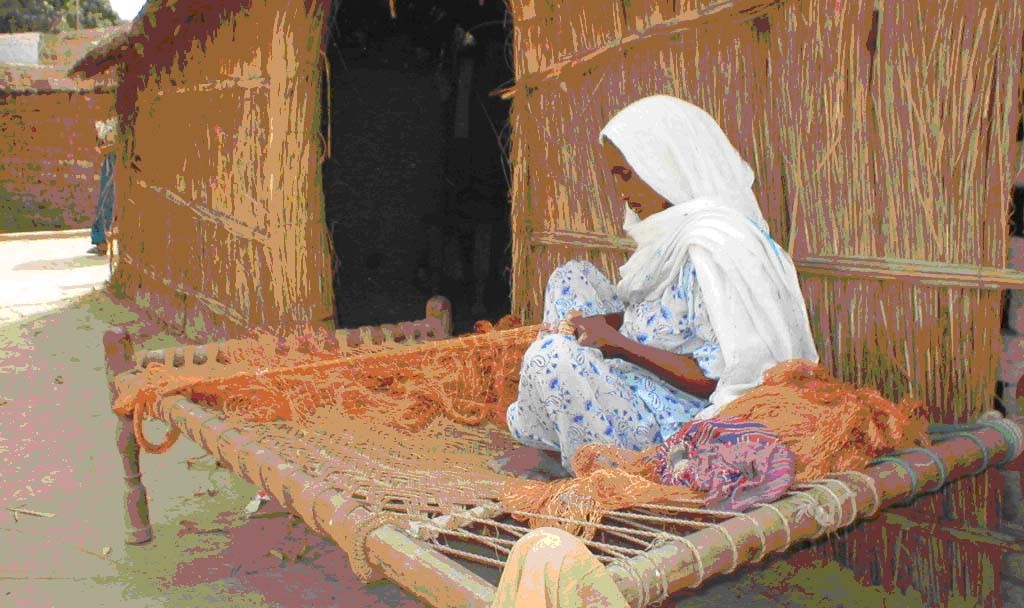
Home-based women workers need to be recognised as formal labourers, instead of being tagged as a poor, deserving and insignificant part of the society

Women’s economic empowerment and access to work and their property rights help end inequality and violence against women, raising their social status in the society and the community. The fact that women form more than half of Pakistan’s population necessitates their prospective participation in economic activities of the country. If given equal opportunities to work, women working at home called "Home-Based Workers" (a large portion of informal sector of our economy), can make a positive change in their lives.
In Pakistan, the home-based women workers living in almost every low-income urban locality in the country, as well as in remote rural areas, are amongst the most exploited group of workers today. They constitute a major segment of labour deployment in the informal sector of the economy. A large number of these women workers (over 8.5 million) live and work on margin of survival, doing a variety of jobs for industries, traders and markets. As a workforce, home-based workers have remained largely invisible. They are not recognised as ‘workers’ so they do not qualify for formal social protection mechanisms.
If provided better food, proper healthcare, easy access to credit and adequate training, women can engage in income-generating activities to increase their incomes and invest in their families and communities, leading to their economic empowerment. In addition, women still make up the majority of part-time and temporary workers in developed countries. Consequently, these women working in informal economies have less access to basic healthcare services, education, financial capital, political appointments, employees’ rights and land ownership.
Increased income controlled by women gives them self-confidence, which helps them obtain a voice and vote in household decisions relating to education and health. Economically-empowered women tend to have fewer children and access to land and property.
Home-based women workers who comprise 70 per cent of the informal workforce contributing towards the country’s economic activities need to be recognized as labourers, instead of being tagged as a poor, deserving and insignificant part of the society. They must be considered as producers and artisans. They also need to be adequately reflected in national statistics and recognized as workers in the labour laws of the country, thus making them eligible for social, economic and legislative protection.
To deal with the issues of home-based workers, the government of Pakistan framed the national policy on home-based workers intended to guide and support the provincial and local governments in developing their own strategies and programmes for the protection and promotion of the rights and benefits of home-based workers. Though the draft of the Punjab policy for home-based workers was approved by the Punjab cabinet in its last regime, it is still waiting for legislation by the provincial assembly.
Celebrating the silver jubilee of SAARC and 10 years of Kathmandu declaration passed on October 20, 2000 on the home-based workers, October 20 has been declared as "Home-Based Workers Day". Since 2011, the day has been observed in South Asian countries, including Pakistan, demanding the government of Pakistan ratify ILO adopted Convention No.177 for Home-Based Workers which calls upon the member countries to adopt, implement and periodically review a national policy aimed at improving the situation of home-based workers.
It is obvious that we cannot afford to set aside half of the population from economic activities in the country that directly has an effect on our national economy and the life of hundreds and thousands of women home-based workers. In the words of Babatunde Osotimehin, Deputy General Secretary UNO and Executive Director UNFPA: "We know that any challenge -- whether terrorism, climate change, Ebola, women’s empowerment and gender equality -- cannot be solved by only half of the population. It requires all of us."